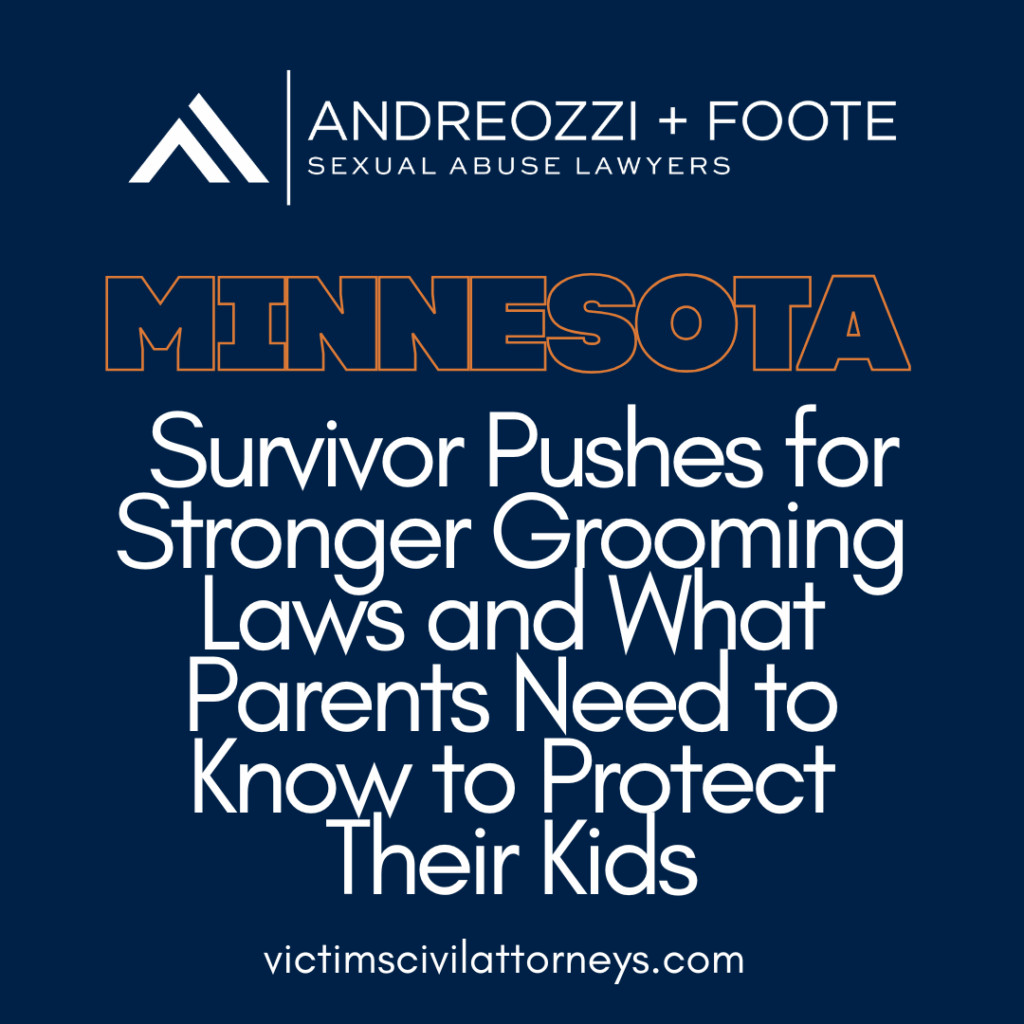In Minnesota, survivor Hannah LoPresto* is doing what every system should: shining a light on the gaps that allow predators to keep teaching. After coming forward about being groomed and sexually assaulted by her band director, LoPresto learned that because there was no criminal conviction he still held a valid teaching license. Now, she’s urging lawmakers to change that.
Her courage underscores a painful truth: our current laws and institutional policies often protect abusers more than children. Grooming isn’t always criminally charged but it’s always dangerous.
What Is Grooming?
Grooming is a pattern of manipulation used by predators to gain a child’s trust, isolate them, and desensitize boundaries before abuse occurs. It can look harmless at first:
- A teacher giving special attention or gifts
- Frequent private messages or one-on-one time
- Oversharing personal details or confiding in a student
- Making the child feel “chosen” or “mature”
- Testing boundaries with jokes, touching, or rule-breaking
By the time the abuse happens, the child may feel responsible, confused, or too afraid to tell anyone.
Warning Signs for Parents
Parents often miss grooming because it hides under the mask of mentorship. As a mother myself, here’s what you need watch for:
- Secrecy: Your child suddenly becomes protective of communication with an adult.
- Isolation: The adult discourages group activities or criticizes other relationships.
- Gift-giving: Unexplained gifts, cash, or favors appear.
- Behavior shifts: Your child becomes anxious, withdrawn, or unusually mature about adult issues.
- Access: The adult volunteers for extra time—rides home, private lessons, late-night calls.
If something feels off, trust your instincts. Ask direct questions and observe whether the adult respects your boundaries.
How to Empower Your Child
Conversations about grooming must start early and evolve with your child’s age. Talk often, repetition is how children learn.
- Teach body autonomy: “You’re the boss of your body. No one touches you without permission.”
- Discuss secrets vs. surprises: Healthy adults never ask a child to keep secrets.
- Model safe communication: Role-play what to do if someone crosses a boundary.
- Name safe adults: Identify three trusted people they can talk to if something feels wrong.
- Stay curious, not judgmental: Keep communication open kids disclose when they feel safe, not scared.
Institutional Accountability
LoPresto’s testimony highlights how institutions often require proof beyond what’s reasonable to act. Schools, camps, and youth organizations must:
- Investigate credible allegations even without convictions.
- Strengthen mandated reporting and transparency policies.
- Train all staff to recognize grooming behaviors, not just overt abuse.
- Require trauma-informed prevention curriculum for students.
Grooming should be treated as its own offense as LoPresto advocates because prevention depends on early intervention.
A Call to Parents and Policymakers
Parents can protect children most effectively when institutions are held to the same standard of vigilance. Don’t wait for the law to change to start the conversation at home.
Ask questions. Watch patterns. Believe your gut.
And to lawmakers: follow Hannah’s lead. Protecting kids shouldn’t depend on a conviction it should depend on courage, evidence, and common sense.
*we only publish survivors names when they speak publicly.


